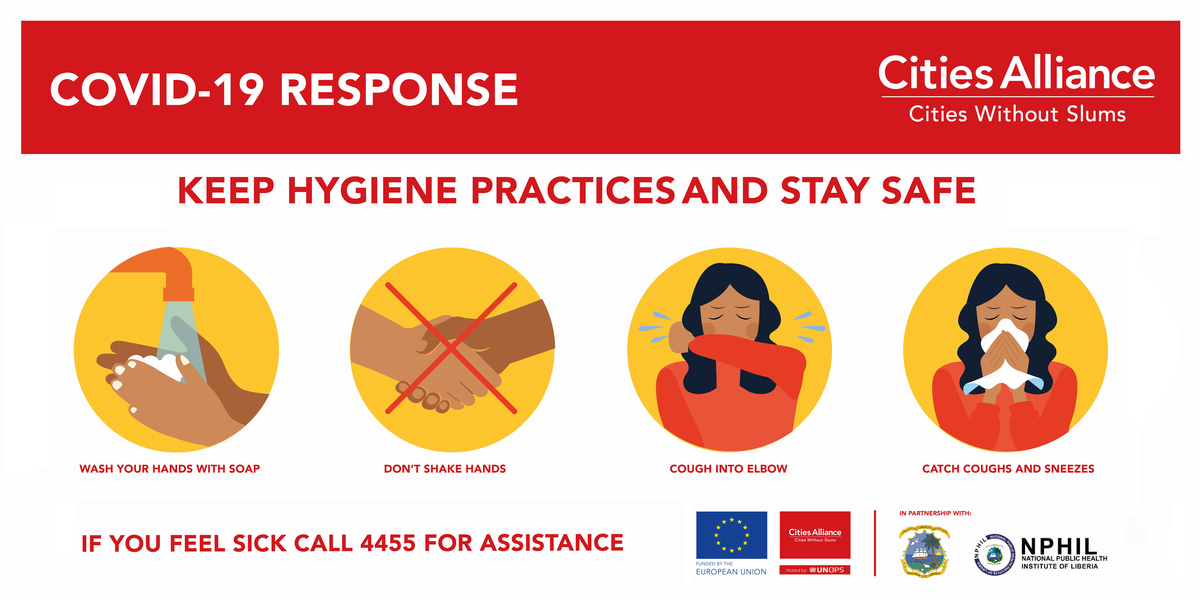Lessons from African slums:
How to include informal settlements on the COVID-19 response and recovery efforts?
This article was written by Global Resilient Cities Network.
Cramped conditions, poor sanitation, and insufficient health facilities are raising Covid-19 risks for Africa’s slum dwellers who are often forced to break lockdown rules to work and feed their families, experts told a recent webinar.
Any effective pandemic response needs to center on informal communities’ knowledge and networks, while massive investment is needed in clinics, hospitals, and infrastructure to better protect people from future outbreaks, they said.
“If we stay home, we die of hunger, if we go outside, we stand the risk of catching coronavirus and spreading it to our families and probably to our communities,” said Mohammed Zanna, from the Nigerian Slum/Informal Settlement Federation.
“I’m really scared… not just for the virus, for the breakdown of law and order. It is a ticking timebomb,” he told the webinar.
Any effective pandemic response needs to center on informal communities’ knowledge and networks
Organized by the Global Resilient Cities Network (GRCN) and the World Bank, the “Inclusive approaches for tackling Covid-19 in informal settlements” event was part of the Cities on the Frontline series (watch the video here).
Social distancing is rarely an option in Africa’s slums where space is a luxury, people often use public bathrooms and many lack clean, running water, said speakers. Quarantine facilities are often non-existent and many urban poor have limited access to clinics and hospitals.
“In many parts of Europe and in the United States… the health crisis is spurring an economic crisis,” said Julian Baskin, principal advisor of Cities Alliance.
“Here, we really have an economic crisis onto which a health problem is being imposed.”
Outbreaks of Ebola and Cholera have shown that public health policies are most effective when governments work closely with informal communities, said speakers.

“Covid-19 responses need to ensure government efforts are interwoven with local community coordinating committees, volunteer networks, and reporting systems,” said Farouk Braimah, Chief Executive of Ghana’s People’s Dialogue on Human Settlements.
“This is nothing new for slum dwellers, we have always worked in conditions that are life and health-threatening,” Braimah told the webinar.
“The only thing that is new about Coovid-19 is that it affects both the rich and the poor. It affects both the slum dweller and non-slum dweller,” he added.
Forward Thinking
People living in informal settlements usually have most information on their areas and populations, so tapping into that data is important when it comes to working out how to target the most vulnerable people, he said.
Describing the challenges in finding and isolating people with Covid-19 symptoms in a cramped Accra neighborhood, Braimah explained how the right tools can help communities set up track and trace systems to potentially reduce transmission.
All speakers agreed that cracking down on misinformation is also key.
Huge investment is needed to improve sanitation and water supplies, while land should be set aside for new clinics and hospitals to prepare Africa’s slum dwellers for future epidemics, Julian Baskin of Cities Alliance.
Targeted radio campaigns are more effective in reaching people than TV public health campaigns, given few can afford televisions and electricity in shantytowns is often sporadic, said Baskin.
At the street level, well-informed and respected community leaders are often the best placed to spread accurate messages and materials about Covid-19 and how to avoid it, he said.
COVID-19 has underscored the urgent need to recognize the rights of Africa’s urban poor and reverse the massive underinvestment that has left slum dwellers more exposed to disease outbreaks, said speakers.
“Huge investment is needed to improve sanitation and water supplies, while land should be set aside for new clinics and hospitals to prepare Africa’s slum dwellers for future epidemics,” said Baskin.
“This is the moment to say the city is the inclusive city, and we need to make sure that people can survive and thrive,” added Baskin.
“We’ve got to make sure that if this happens again, we’ll be better prepared.”
The opinions expressed herein are solely those of the author(s) and do not necessarily reflect the official views of Cities Alliance or its members





